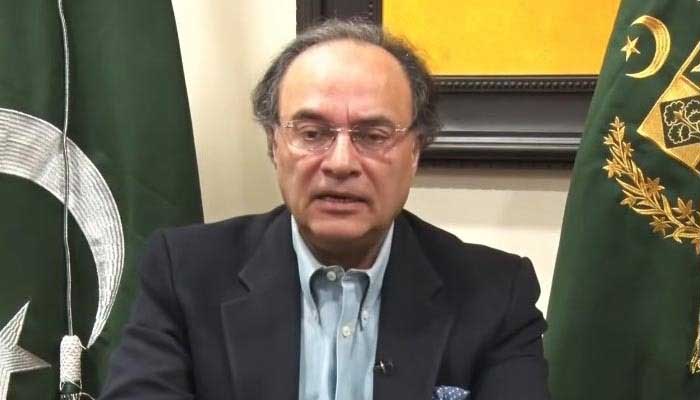ISLAMABAD: After the International Monetary Fund (IMF) mission — led by Nathan Porter — concluded its visit to Pakistan, Finance Minister Muhammad Aurangzeb expressed the government’s determination to enforce the measures related to revenue collection, saying that every sector will have to contribute in this regard.
“The government is firm on compliance and enforcement regarding the revenue and taxations and every sector will have to play its due role,” he said while addressing a press conference in Islamabad on Sunday.
Since the visit was not anticipated, there were reports that the global lender’s visit would mean the federal government would have to roll out a mini-budget.
However, Aurangzeb — while talking to Geo News earlier — dismissed the possibility and also denied reports of additional tax measures.
In a statement earlier today, the global lender said it has urged Pakistan to broaden its tax base by targeting untapped revenue sources — as the country grapples with challenges in expanding its tax collection.
The Fund said the staff visits are standard practice for countries with semi-annual programme reviews and aim to engage with the authorities and other stakeholders on the country’s economic developments and policies and the status of planned reforms.
Addressing the presser, the finance minister said that the Fund and Pakistan were engaged in a continuous dialogue as “mutual credibility and trust” is built through bilateral talks.
“They [IMF] didn’t say anything that we were not aware of already […] there were no surprises,” Aurangzeb said, adding that he welcomed the Fund mission’s visit.
The minister pointed out that reforms related to taxation, energy reforms and state-owned enterprise (SOE), privatisation and public finance were on the IMF’s visit agenda.
He further said that the visiting mission took stock of the situation and held discussions on various matters, including climate resilience.
“We shared our economic road map with visiting IMF mission and how we will take it [reforms] forward,” he said, adding that the interactions would continue virtually. At the same time, he said he would also welcome another opportunity to meet IMF officials “face-to-face”.
At the outset of the presser, the finance minister said he wanted to share the developments, that came about in the past four weeks starting from the Pakistani delegation’s visit to Washington for IMF-World Bank meetings.
The delegation — which included the Finance Secretary, Economic Affairs Division Secretary, and SBP [State Bank of Pakistan] Governor — held extensive discussions with various stakeholders, including officials from the IMF, World Bank, Asian Development Bank, Asian Infrastructure Bank and International Finance Corporation, and rating agencies.
“I have been very clear right from the beginning, that we will engage with rating agencies at the highest level in the government because we need to know where we are and where we are heading,” he said.
Following “positive meetings” with Moody’s and Fitch, Aurangzeb said, they succeeded in achieving upgrades in ratings in the first quarter of this fiscal year.
Similarly, Aurangzeb said he engaged with his counterparts from Saudi Arabia, the United Arab Emirates (UAE), China, Turkiye, the United Kingdom, and the US Treasury.
The minister said the government’s prudent economic policies have resulted in a reduction of inflation from 38% to just 7% and the policy rate from 22% to 15%, while foreign exchange reserves have surged from two weeks of import cover to 2.5 months of import cover.
The finance czar said the international community, financial institutions, and rating agencies have commended the government’s efforts in leading the country’s economy from deficits to surpluses.
He further said that Prime Minister Shehbaz Sharif would also share a home-grown agenda with the nation soon on how we will take forward our economic stability. “It [the agenda] has been very well syndicated with all the stakeholders,” he added.
Concluding the presser, Aurangzeb called on all the political parties, media, and other stakeholders to join hands for charters on the environment and economy to ensure a safe and healthy future for the coming generations.


